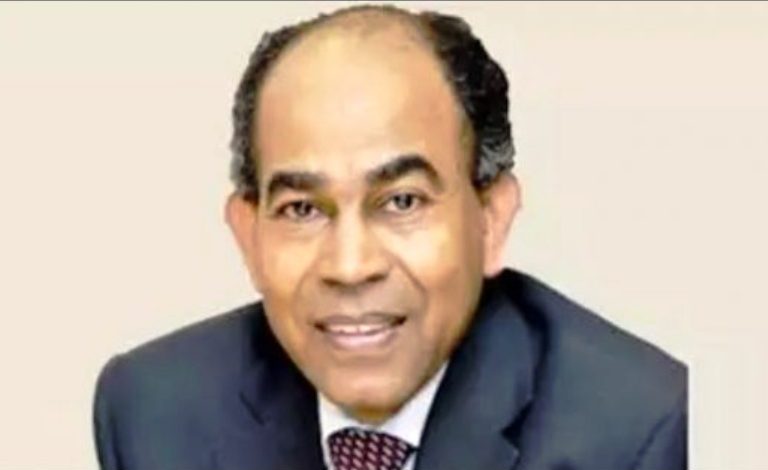How can the Solution be Sudanese?

Osman Mirghani
In conjunction with, or even before, the US Special Envoy Tom Perriello’s talk about the possibility of moving to send international and African forces to Sudan, it seemed noticeable that there were increasing calls for an international “military” intervention under the cover, umbrella, or pretext – call it what you will – of protecting civilians.
Regardless of the motives, calls for any external military intervention remain fraught with risks and will push Sudan towards complications and a horizon of unknown consequences. The experiences and repercussions of international military interventions before our eyes did not achieve the hoped-for success, but rather left behind catastrophic situations that were sometimes more complicated.
For a long time, the world did not show serious interest commensurate with the scale of the disaster, and did not make real efforts to deter the parties that fuel the war by supplying weapons and mercenaries through neighboring countries.
Many articles have been written, and many statements have been issued criticizing the international neglect, particularly the position of the Biden administration, which has been criticized by American lawmakers on several occasions.
Although the US administration co-sponsored Jeddah Forum and appointed Special Envoy Perello under pressure from Congress, it did not make the Sudanese war a priority. President Biden’s last statement on the war was about a year ago, which led many parties to conclude that the White House was not interested in the Sudanese war while focusing on the wars in Ukraine and Gaza.
From this standpoint, when Washington talks about international forces for Sudan, it primarily means African forces.
The truth is that for many reasons and accusations of complicity in supporting the “Rapid Support Forces RSF and facilitating the passage of weapons, most of the neighboring African countries are not suitable as mediators or even partners in any mediation, let alone intervention under the umbrella of international/African forces that are being promoted. In my opinion, only two countries find acceptance from various parties to host any Sudanese-Sudanese negotiations to end the war and restore the transitional path: Saudi Arabia, which is already hosting Jeddah Forum, and Egypt, which held several rounds of meetings and conferences of Sudanese civil powers , and adopted the initiative to hold a summit of neighboring countries in the first months of the war.
The conference of Sudanese civil political powers called for by Egypt could be, if it is held and the conditions and reasons for its success are prepared, an opportunity and an entry point to return to Jeddah platform in a clearer way that helps in reaching an agreement to end the war and return to a new transitional path agreed upon in advance, ensuring its success this time, away from the quarrels and conflicts that led the country to this tragic situation. But there are certainly obstacles and interventions that may hinder the convening of the Cairo conference, which now seems clear that it will not be held at the end of this month as scheduled.
What is striking is the entry of African countries into the line and their pressure in harmony with Perillo’s hint at moves to prepare the ground for sending international and African forces to “impose” peace if negotiations to stop the fighting are not resumed. In this regard, we can point to the meeting of the African Peace and Security Council (APSC)which was held headed by the of Ugandan President Yoweri Museveni a week ago and decided to initiate a move to invite the President of the Sovereignty Council TSC and Commander in chief of the Sudanese Army SAF Abdel Fattah al-Burhan, and the Commander of the Rapid Support Forces RSF Mohamed Hamdan Dagalo, to a meeting under the auspices of the African Union AU and the Intergovernmental Authority on Development in East Africa (IGAD) “without delay,” according to the statement of the meeting. It is noteworthy here that this invitation went beyond Jeddah platform and its role as the umbrella under which previous rounds of negotiations between the army and the Rapid Support Forces RSF were held, which were agreed upon by the parties, unlike the African role.
Many are believe that the way to end the war is negotiations between the army and the Rapid Support Forces RSF which has not achieved success so far. In my opinion, the correct way to end the war is through comprehensive negotiations and consensus between the political and civilian forces first, which defuses the fundamental issues feeding this war, and prepares the ground for the stage after it. Although the war broke out between the bearers of arms, at the root of its causes are the conflicts of political powers that not only failed the transitional period, but also created the conditions for the outbreak of war, and contributed in one way or another to prolonging its duration.
Without this consensus, we will remain in a vicious circle and the war will last longer due to many external and internal factors, and even if it ends, the factors of instability will remain. However, if the parties give up their nihilistic and exclusionary positions, I can almost assert that the conditions will be ripe for stopping the war and addressing the thorny issues currently ignored under vague slogans such as “No to war”, and this is a topic that needs to be returned to in a later article.
* Quoted from (Asharq Al-Awsat)



